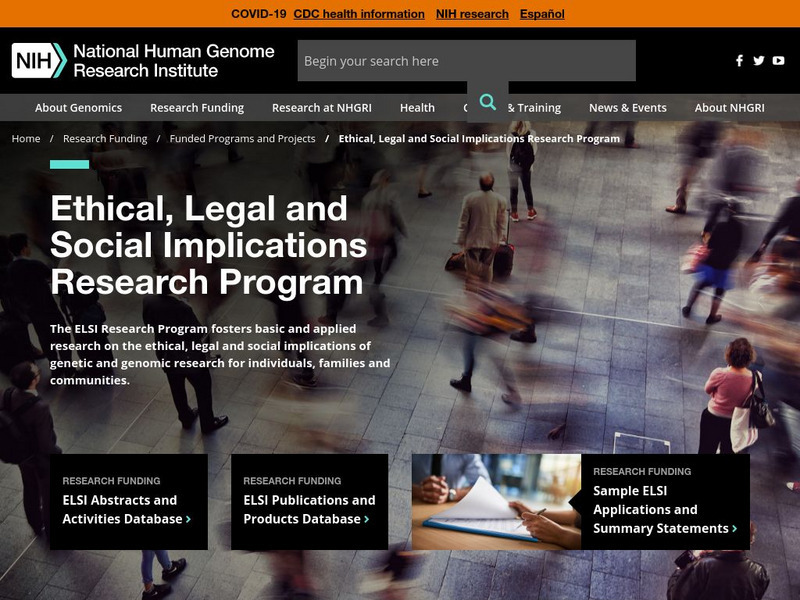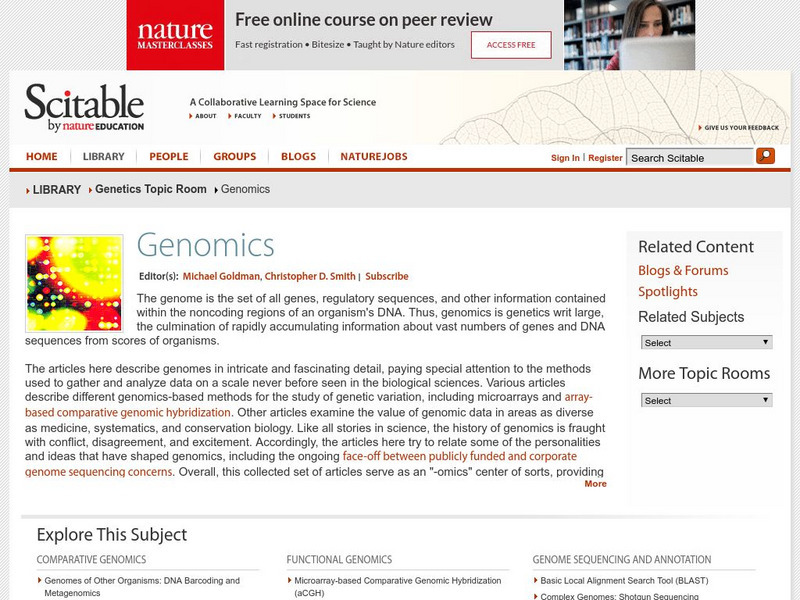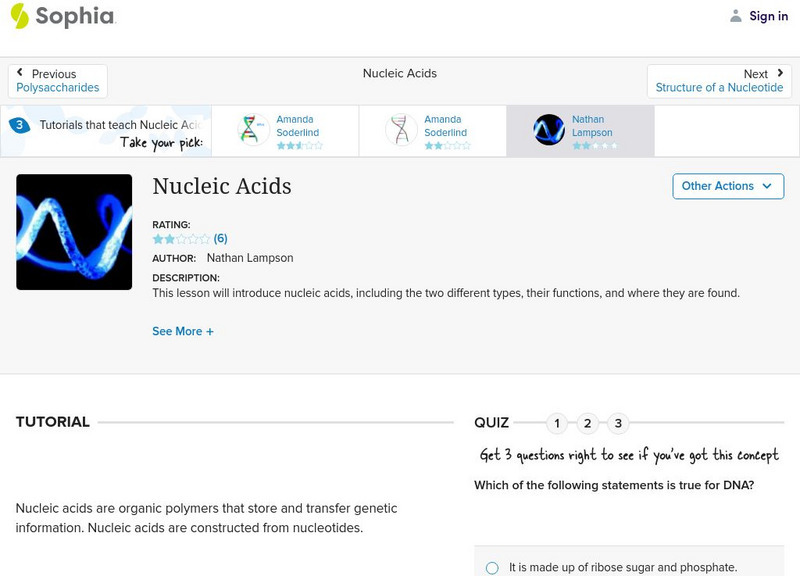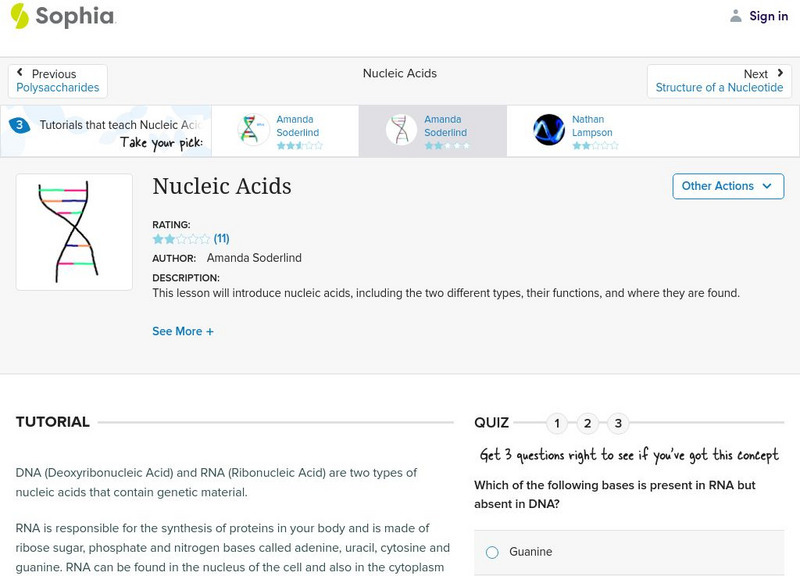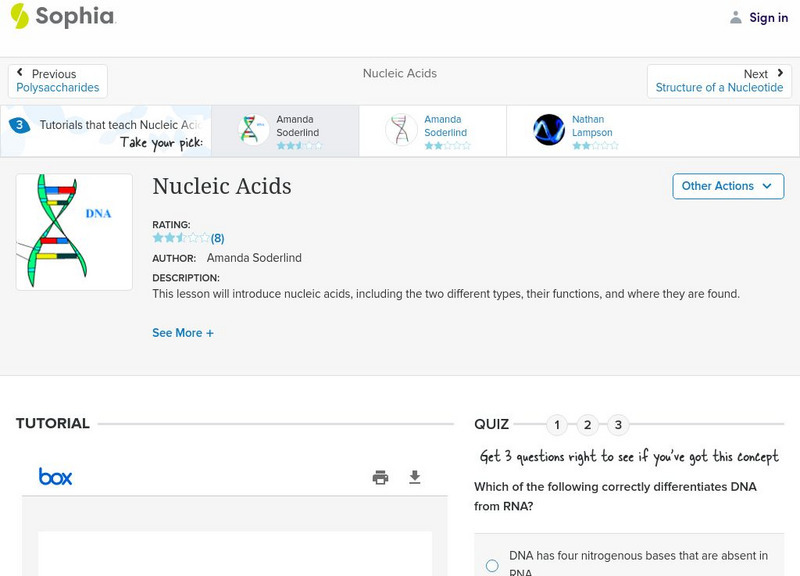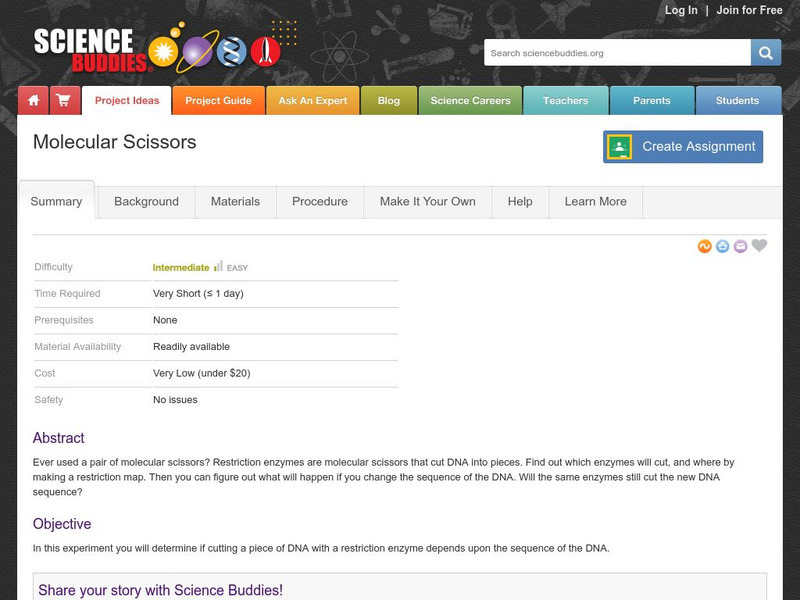Hi, what do you want to do?
Other
Molecule of the Month: Dna (Java)
A good site that begins with the background and branches into the structure, function and applications of technology. This version of the page requires Java, and should open some applets that allow you to see the structures in 3-D.
Ohio State University
Ohio State University: Dna Replication
This site from Ohio State University provides a good outline of the process of replicating DNA. The outline contains a numerous amount of embedded vocabulary links, illustrations of the process and also review questions and solutions.
Sophia Learning
Sophia: Structure and Function of Macromolecules: Nucleic Acids
A podcast lesson providing a brief overview of the function of the macromolecules, nucleic acids. [0:38]
Nature Research
Scitable: Nucleic Acid Structure and Function
Get an in-depth look at the importance of DNA with this library of information on nucleic acid structure and function. Understand the structure and function of DNA by exploring topics in the chemical structure of DNA, organization of DNA...
BBC
Bbc: Gcse Bitesize: Reproduction, the Genome and Gene Expression
This lesson focuses on how genes, sections of the DNA, are formed including descriptions of transcription and translation. It provides links to a video and a test.
University of Maryland
Univ. Of Maryland: Master of Chemical and Life Sciences: Dna Bracelets [Pdf]
Using a bead-bracelet simulation, construct a sequence of amino acids. Then, discover the effects of silent, point, and frameshift mutations.
Cold Spring Harbor Laboratory
Dna From the Beginning: Classical Genetics
This article from DNA from the beginning is loaded with goodies about genetics and DNA. Starting with Mendel all the way through the concept of DNA, you will see how life is given certain characteristics. Some animations and audio clips...
Cold Spring Harbor Laboratory
Dna Learning Center: Transcription & Translation: M Rna Splicing
Once a gene has been located and transcribed into mRNA, it must first be edited before it can be translated into a protein. This editing process is called splicing it involves removing non-coding regions called "introns", leaving only...
National Human Genome Research Institute
Ethical, Legal, and Social Implications Research Program
This is the official division for researching the implications of the Human Genome Project. Find out about topics being discussed involving the ethics of the program, how it is socially accepted, and what sort of legislature is involved...
BiologyWise
Biology Wise: What Is a Stop Codon?
A stop codon is a nucleotide triplet in messenger RNA that signals the end of a protein during the translation process. Read about how this works, the different types of stop codons, and how a mutation can sometimes occur.
Science Museum, London
Science Museum: Making the Modern World: Dna: Structure and Function
The learning module helps students gain a deeper understanding of the structure and function of DNA.
PBS
Pbs Learning Media: Dna on the Witness Stand
Dr. Eric Lander of the Human Genome Project explains the use of DNA as forensic evidence. He describes the process and need for standards in testing laboratories and discusses the use of DNA evidence as a human rights tool.
University of Arizona
University of Arizona: Problemas Sobre Expression Genica en Eucariotas
With these series of problems presented here you can study the gene expression in eukaryotes, including topics such as post-transcriptional modifications, mRNA synthesis and RNA-DNA hybridization. The correct answers have a brief...
Khan Academy
Khan Academy: Intro to Gene Expression (Central Dogma)
Learn how genes in DNA can provide instructions for proteins. Understand the central dogma of molecular biology: DNA, RNA, protein.
Sophia Learning
Sophia: Structure and Function of Macromolecules: Nucleic Acids: Lesson 2
This lesson presents how the structure and function of nucleic acids pertain to living things. It is 2 of 2 in the series titled "Structure and Function of Macromolecules: Nucleic Acids."
Nature Research
Scitable: Genomics
Get an in-depth look at the genome which includes all genes, regulatory sequences, and other information found in noncoding regions of DNA. Articles on webpage explores the large amount of information available about genes and DNA...
Vision Learning
Visionlearning: Earth Cycles: The Phosphorus Cycle
An introduction to the significance of phosphorus in regards to living organisms. An explanation of the phosphorus cycle is discussed in different scenarios.
Other
The Big Picture Book of Viruses
This site has a catalog of all known viruses, including a picture of each, structure, family, hosts, and more.
Other
World of Teaching: Protein Synthesis (Power Point)
This is a well structured presentation with lots of graphics on how proteins are formed from DNA and RNA.
Sophia Learning
Sophia: Nucleic Acids: Lesson 2
This lesson will introduce nucleic acids, including the two different types, their functions, and where they are found. It is 2 of 9 in the series titled "Nucleic Acids."
Sophia Learning
Sophia: Nucleic Acids: Lesson 6
This lesson will introduce nucleic acids, including the two different types, their functions, and where they are found. It is 6 of 9 in the series titled "Nucleic Acids."
Sophia Learning
Sophia: Nucleic Acids: Lesson 7
This lesson will introduce nucleic acids, including the two different types, their functions, and where they are found. It is 7 of 9 in the series titled "Nucleic Acids."
BiologyWise
Biology Wise: Start Codon
A start codon is a nucleotide triplet in a genetic sequence that occurs at the start of a protein's synthesis. Read about how this works and how a mutation can sometimes occur.
Science Buddies
Science Buddies: Molecular Scissors
Ever used a pair of molecular scissors? Restriction enzymes are molecular scissors that cut DNA into pieces. Find out which enzymes will cut, and where by making a restriction map. Then you can figure out what will happen if you change...






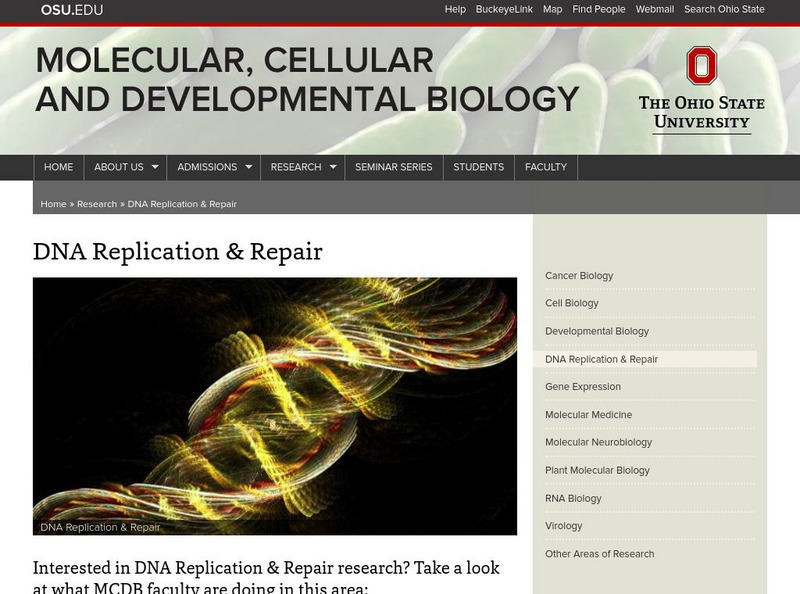

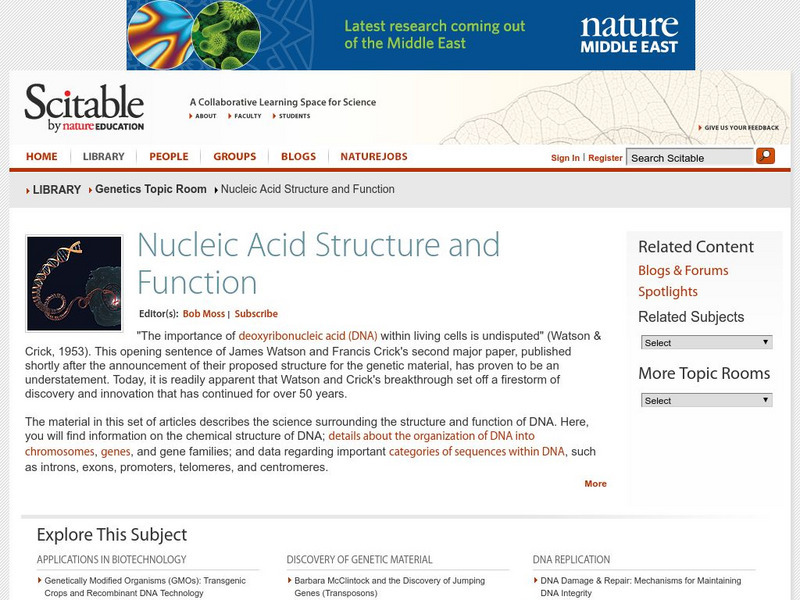

![Univ. Of Maryland: Master of Chemical and Life Sciences: Dna Bracelets [Pdf] Lesson Plan Univ. Of Maryland: Master of Chemical and Life Sciences: Dna Bracelets [Pdf] Lesson Plan](https://static.lp.lexp.cloud/images/attachment_defaults/resource/large/FPO-knovation.png)


